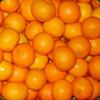Best Management Practices

Best Management Practices (BMPs) are production systems and management strategies that have been scientifically shown to minimize adverse impacts of agricultural production.
Foliar Fertilization
Foliar fertilization is the application of small amounts of appropriate fertilizers to plant’s foliage for assimilation and use by the plant as a source of nutrients.
Movement and Mechanisms for Uptake:
- Into leaf
- Into cells
- Throughout plant via phloem
- Waste Management and Nutrient Recycling
Factors Affecting Foliar Uptake:
- Chemical Properties of the Fertilizer Compound
- Spray Mixture Composition
- Method of Spray Application
- Crop Condition and Nutritional Status
- Growth State of Plant
- Meteorological Conditions
Compost Application
Compost is organic matter such as yard waste and animal manures that have been broken down or digested by microbes to produce humus for the purpose of improving soil quality.
Compost is safe for people, plants, and animals. It has a mild earthy smell. In the last decade several thousand acres of Florida citrus have received applications of compost.
Benefits of Compost Applications:
- Stimulates plant root growth
- Increases nutrient uptake
- Decreases evaporation
- Increases water holding capacity
- Reduces surface water runoff
- Facilitates drainage
- Regulates soil temperature
- Provides a rich substrate for soil microbes
- Increases soil’s Cationic Exchange Capacity (CEC)